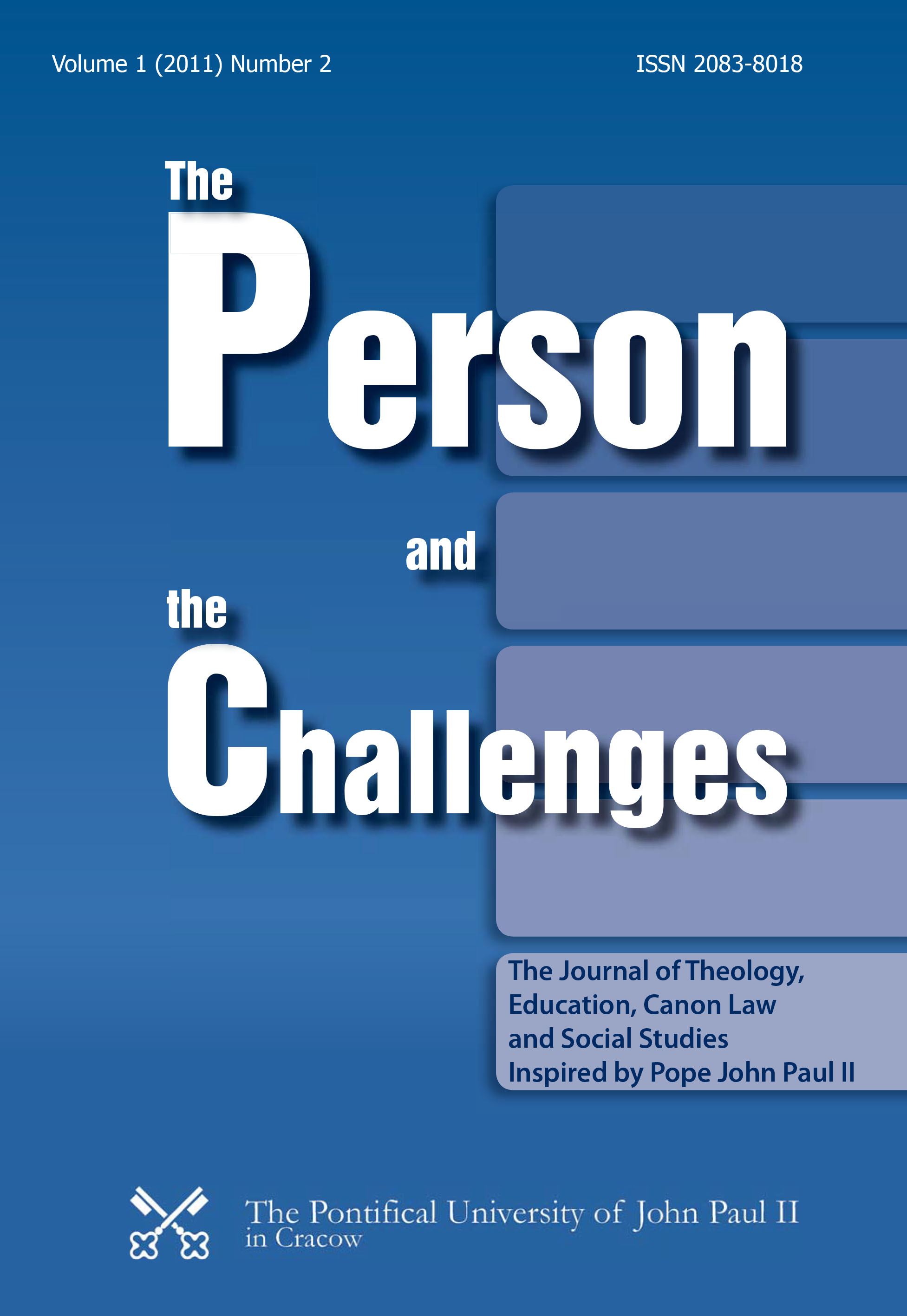The Impact of the Status of Religion in Contemporary Society upon Interreligious Learning
DOI:
https://doi.org/10.15633/pch.851Słowa kluczowe:
status of religion, laïcité-secularity, religious indifference, interreligious dialogue, interreligious learningAbstrakt
The author analyses the growing importance of IRL against the background of a changing European society. Based on sociological research, the traditional status of the Christian religion - and the monoreligious education that normally accompanies it - is seriously being challenged by the process of secularisation and the growing plurality or religious attitudes and beliefs among people in the West. Europe has become a complex network of influences that constitute the actual symbolic field employed by people in their search for truth. The interest for religion is still very much alive. People are not endlessly indifferent but still hope to find (religious) truth and meaning, even if this process has become much more complex today. In this context, interreligious dialogue itself becomes a religious act. The status given by a religion to other religions is of crucial importance for its ultimate credibility. In this line of thought, religious education should transcend both a purely monoreligious approach and a purely objective-comparative (multireligious) approach, and instead should cultivate in the pupils - at the very borderlands of the different religious, cultural and geo-political territories - an attitude of practising interreligious dialogue as a religious event.
Bibliografia
Berling J.A., Understanding Other World Religions. A Guide for Interreligious Education, New York 2004, Orbis Books.
Bongardt M. (ed.), Verstehen an der Grenze. Beiträge zur Hermeneutik interkultureller und interreligiöser Kommunikation, Münster 2003, Aschendorf.
Davie G., Europe: The Exceptional Case. Parameters of Faith in the Modern World, London, Darton 2002, Longman and Todd.
De Schrijver G., Recent Theological Debates in Europe. Their Impact on Interreligious Dialogue, Bangalore 2004, Dharmaram Publications.
Halman L., The European Values Study: a third wave: source book of the 1999/2000 European Values Study Survey, Tilburg 2001, Tilburg University.
Heisig J.W., Dialogues At One Inch Above The Ground, New York 2003, Herder
& Herder.
J.-P.Willaime, J.-R. Armogathe (eds.), Les mutations contemporaines du religieux, Turnhout 2003, Brepols.
Lombaerts H., Pollefeyt D. (eds.), Hermeneutics and Religious Education, Leuven 2004, Peeters.
Lombaerts H., The Impact of the Status of Religion in Contemporary Society Upon Interreligious Learning, in: D. Pollefeyt (ed.), Interreligious Learning, Leuven, 2007, Peeters, pp. 55-86.
Smart N., Atlas of the World’s Religions, Oxford 1999, Oxford University Press.
Taylor C., Appiah K.A., Habermas J., Gutmann A., Multiculturalis. Examining the Politics of Recognition, Princeton 1994, Princeton University Press.
Willaime J.-P., Europe et religions. Les enjeux du XXIe siècle, Paris 2004, Fayard.
Pobrania
Opublikowane
Numer
Dział
Licencja
Prawa autorskie (c) 2015 Herman Lombaerts

Utwór dostępny jest na licencji Creative Commons Uznanie autorstwa 4.0 Międzynarodowe.
Autorzy publikujący w czasopiśmie udzielają jego wydawcy zgody o następującej treści:
- Autor zachowuje autorskie prawa majątkowe do utworu, a jednocześnie udziela wydawcy czasopisma zgody na jego pierwszą publikację w wersji drukowanej i wersji online na licencji Creative Commons Uznanie autorstwa 4.0 Międzynarodowe oraz zgody na wykonywanie opracowań, w tym przekładów.
- Autor ma możliwość udzielania zgody niewyłącznej na opublikowanie utworu w wersji, która ukazała się w czasopiśmie (np. zamieszczenia go w repozytorium instytucjonalnym lub opublikowania w książce), wraz z informacją o jego pierwszej publikacji w czasopiśmie.
- Autor może umieścić swój utwór online (np. w repozytorium instytucjonalnym lub na swojej stronie internetowej) jeszcze przed zgłoszeniem utworu do czasopisma.

